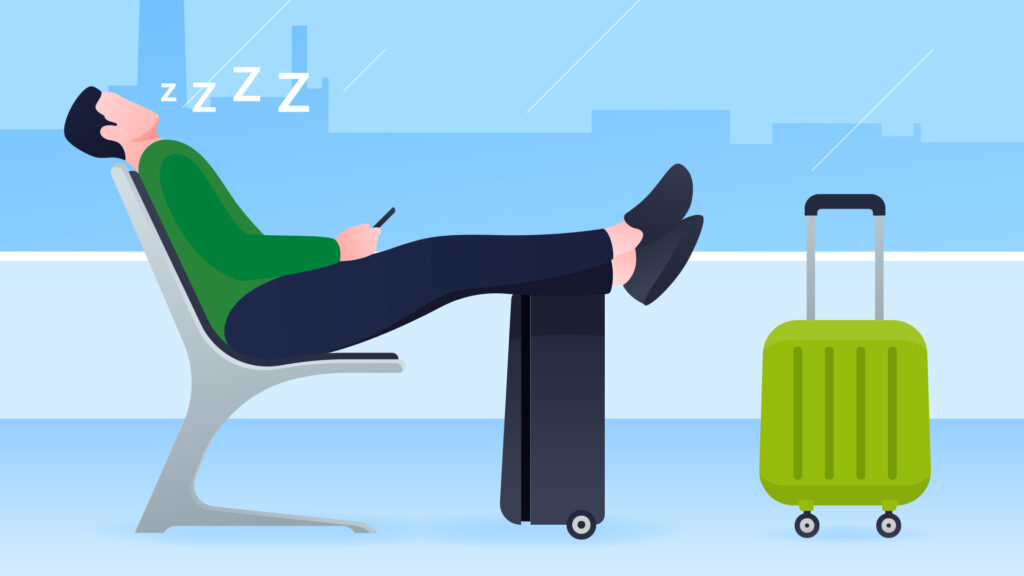Jet lag is just one of those inevitable things that make long-distance travel so unpleasant, making you lethargic, confused, and out of phase with your new time zone. But with a few simple tips and tricks, it can be lessened and allow you to have a more peaceful trip. Whether it’s changing your sleep patterns before you leave making sure to stay hydrated Livni says, or taking advantage of natural light to help reset your internal clock, there are easy things you can do to beat jet lag. With a few of these tips, you’ll get to your destination well-rested and ready to enjoy your trip, and you’ll transform the annoying jet lag into just another aspect of travel.
Pre-Trip Preparation
- Importance of Planning and Preparation: It is always better to plan and make the trip much more comfortable. Doing some research about your destination, knowing the time difference, and booking transport or accommodation ahead can lessen the stress and make you feel more on top of things, so it’s easier to deal with jet lag and make the most of your holiday.

- Adjusting Sleep Schedule Before Departure: Creeping your sleep schedule a few days before departure assists the body in adjusting to the new time zone. If you can somehow get your internal clock to match the time at your destination, you will minimize the jet lag and that transition will be much easier when you arrive.
- Packing Essentials for In-Flight Comfort: Having accessories such as a neck pillow, eye mask, noise-canceling headphones, and cozy clothes makes your flight more comfortable. Packing these helps you sleep better on the plane, so you can get there more rested and ready to fight jet lag.
In-Flight Strategies
- Hydration and Nutrition: Hydration is essential for flights, since cabin air is very dry and can dehydrate you, making jet lag even worse. Hydrating yourself throughout the flight, and opting for light, healthy meals instead of heavy, salty ones will keep your energy up and your body in good shape when you’re on and after the flight.

- Movement and Exercise During the Flight: Frequent movement, whether it’s walking down the aisles or just doing some easy street optimizes blood flow and helps with stiffness. Not only does this prevent deep vein thrombosis, but it keeps you more comfortable and awake so you can more readily adapt to the new time zone when you arrive.
- Sleep Aids and Relaxation Techniques: Taking sleep aids such as neck pillows, blankets, or even natural supplements can make it easier for you to sleep on the flight. Relaxation experiences like deep breathing or soothing music before or during your flight also can help you sleep better, which lessens the effects of jet lag and leaves you feeling more rested when you arrive.
Post-Arrival Recovery
- Gradual Adjustment to Local Time: Once you arrive, gradually getting your day in sync with the local time is easier on the body. Eating, sleeping, and being active in a new time zone aligns your internal clock with the external world, and gets you over jet lag.
- Light Exposure and Outdoor Activities: Light is a very strong zeitgeber, natural light, in particular. Getting outside, particularly in the early part of the day, is a cue to your body that it’s time to get up. It’s also been shown that just getting outside can help you feel better and have more energy, which will make the switch easier.

- Power Naps and Sleep Hygiene: Power naps of 20-30 minutes can re-energize you without interfering with your night’s sleep. Practicing good sleep hygiene, including a cool, dark, and quiet sleeping environment, will help you both fall asleep more easily and adjust to the time change.
- Avoiding Stimulants and Alcohol: Caffeine and alcohol can both interfere with your sleep and dehydrate you, which will make jet lag even more unpleasant. They should be used sparingly and not especially close to bedtime to have better sleep and to facilitate the adjustment to the local time.
- Seeking Medical Advice if Necessary: If symptoms of jet lag are extreme or do not go away, it is a good idea to seek medical attention. They can suggest treatments such as melatonin supplements, or provide medication to ease symptoms, so you can still make the most out of your travels without the hassles.
There’s no question about it; beating jet lag takes planning, planning, and planning. The best ways to combat it are to get plenty of sleep and gradually adjust to the local time. Now you have all these handy hints and will be able to take full advantage of your destination from arrival. You may also like other posts in our Health section.



